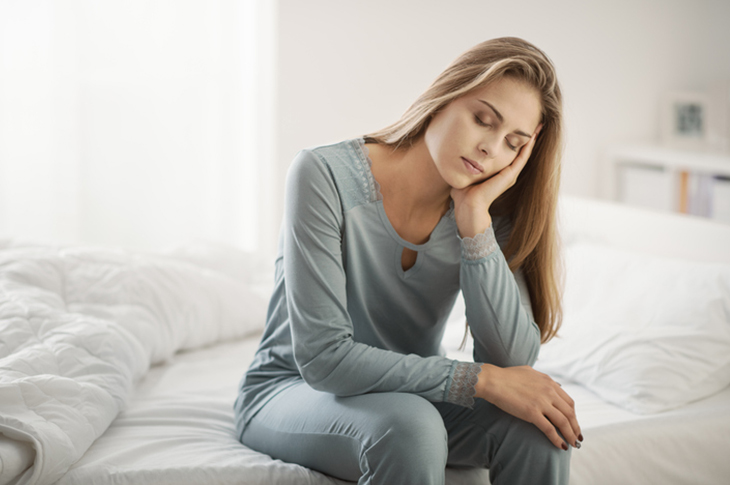The thick of the holiday season usually means long nights trying to meet end of year deadlines, searching for gifts, traveling, and attending holiday festivities. Although this is a joyous time of year, it’s also hectic, and getting good quality sleep can rank low on your priority list.
Plus, there has always been this consensus that sleep debt could be forgiven with a couple of longer, quality nights of sleep, so you might be thinking you can catch up on those Zzz’s in the new year when things settle down. However, a recent article argues that the idea of “catching up on sleep” is a myth and points to evidence that too little sleep on a regular basis can most likely lead to long-term brain damage and even higher your risk of developing Alzheimer’s disease.
“Sleep is an interesting area of study because we seem to know more about what happens when we don’t sleep than when we do,” says Dr. Michael Breus, PhD. “Sleep appears to affect every organ system and every disease state. Literally everything you do, you do it better with a good night’s sleep.”
Below, we dive deeper into the effects of sleep deprivation that you might not be aware of and some steps you can take to make sure that you’re getting enough quality snoozes during this busy time of year.
What are the detriments of lack of sleep?
It’s no secret that getting enough shut-eye is essential to your overall health. It not only allows your body and mind to recharge so you can wake up alert, but also helps you fend off diseases.
“Sleep is foundational to health,” says Chris Winter, MD, neurologist, sleep specialist, and host of the Sleep Unplugged podcast. “It leads to the restoration of our minds and bodies, bolters our immune systems, optimizes our cognitive and emotional capacity, and maintains our cardiovascular health.”
While it’s normal to not get a perfect night’s sleep every single night, weeks of poor sleep can lead to long term effects on your mental and physical health. Below Dr. Breus dives deeper into these detriments.
Immune function. Sleep is essential for the proper functioning of the immune system, which protects the body from potentially harmful substances. Sleep deprivation can alter how quickly and effectively the immune system responds to threats, making it harder to fight off infections that would typically be easily controlled.
Hormone levels. Sleep promotes the normal production of hormones. For example, sleep is involved in the regulation of ghrelin and leptin, which regulate hunger, and insulin, which controls blood sugar levels.
Pain levels. Sleep deprivation can heighten the perception of pain and may reduce the effectiveness of certain types of pain medication.
Excess weight. Research has found that sleep deprivation can be a contributing factor to childhood obesity. In adults, lack of sleep may increase the risk of obesity because of sleep deprivation’s potential effects on hunger, metabolism, and hormone levels.
Type 2 diabetes. Studies have identified an association between sleep loss and the risk of type 2 diabetes, which is a condition that can have far-reaching effects on overall health.
Depression. People who are sleep deprived may be more likely to experience symptoms of depression, a condition which also frequently causes further sleep disruptions.
Anxiety. Anxiety, like depression, can be worsened by a lack of sleep, and anxiety disorders may make it harder to sleep well, contributing to a negative cycle of anxiety and insufficient sleep.
Hallucinations. Serious short-term sleep deprivation may trigger hallucinations if it involves 48 hours or more without sleeping.
Luckily, there’s steps you can take to improve your sleep overtime. “I think everything starts by setting aside enough time to sleep and being disciplined enough to take advantage of the time,” says Dr. Winter. “Keeping a regular schedule of eating, exercise, as well as bed and wake time is important. Making sure the bedroom environment is dark and conducive to sleep is important as well.”
Saying “no” to plans when you and your body need to, drinking plenty of water, and getting outside during the day for some sunshine are all things that can help you get a better night’s sleep too. The main takeaway is that sleep is invaluable, so be sure to prioritize good sleep hygiene throughout this holiday season and into the new year.
The post 8 Surprising Effects When You Don’t Get Enough Sleep appeared first on Fitbit Blog.
